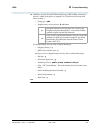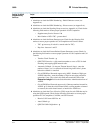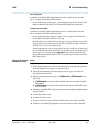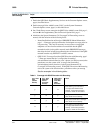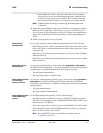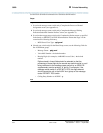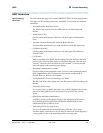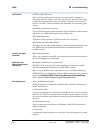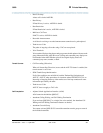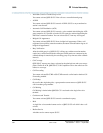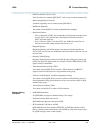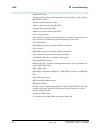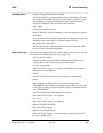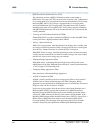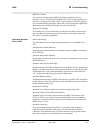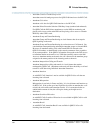
QSIG
381
Administration for Network Connectivity
555-233-504 — Issue 1 — April 2000 CID: 77730
B Private Networking
• Data-Call Setup
A data call is denied ANF-PR.
• Data Privacy
If Data Privacy is active, ANF-PR is denied.
• Data Restriction
If Data Restriction is active, ANF-PR is denied.
• Malicious Call Trace
If MCT is active, ANF-PR is denied.
• Recorded Announcement
A call that is receiving a recorded announcement cannot have its path replaced.
• Trunk Access Code
The paths of outgoing calls made using a TAC are not replaced.
• Voice Terminals
Voice terminal displays that show trunk group name should update with new trunk
group information after ANF-PR occurs. Calling and connected party displays are
not disturbed when ANF-PR takes place if the original display shows the
connected party name, number, or both.
Transit Counter • Call Forwarding (Diversion)
When call forwarding (Diversion) occurs and the ANF-TC feature is enabled, the
transit counter is set to zero.
• ISDN Trunk Group Administration
If all of the conditions are satisfied for both the Tandem Hop Limitation and
ANF-TC, ANF-TC takes precedence. In situations where DEFINITY ECS is an
Incoming or Outgoing Gateway, either makes use of the hop count/transit count
information provided by the other.
• Trunk Access Code
ANF-TC does not apply to TAC calls.
Call Completion • Adjunct Switch Applications Interface (ASAI)
ASAI cannot invoke/initiate QSIG-CC.
• Attendant Calling Waiting and Call Waiting Termination
If you activate QSIG SS-CC to a single line voice terminal, the Attendant Call
Waiting and Call Waiting Termination features are denied.
• Attendant Console Group
You cannot activate QSIG SS-CC toward the attendant console group or towards
the individual attendant.



